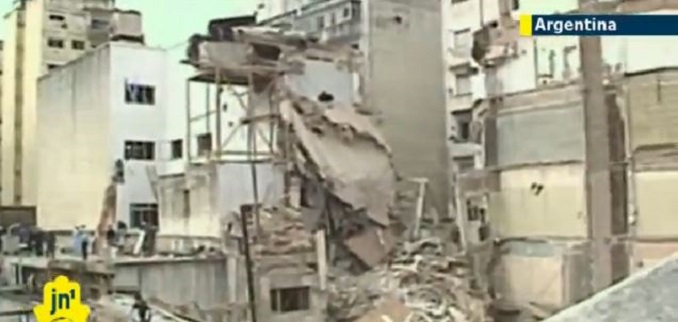Iranian president-elect Hassan Rouhani served on the Iranian government committee that approved the 1994 bombing of a Jewish community center in Buenos Aires, Argentina that killed 85 people.
Former Iranian intelligence official Abolghasem Mesbahi, who defected from Iran in the late 1990s, testified that the decision to launch the attack was made within a special operations committee connected to the powerful Supreme National Security Council in August 1993.
According to the 2006 indictment, Mesbahi testified that Rowhani, who was then serving as secretary of the Supreme National Security Council, was also a member of the special committee when it approved the AMIA bombing.
The revelation comes in the wake of deepening concern regarding the role that Rouhani has publicly and privately played in suppressing pro-democracy protests stretching back to the early 1990s. An Associated Press report from 1999 reads:
The speech by Rowhani, the deputy head of Iran’s Supreme National Security Council, put pro-democracy protesters on notice of a possible harsh response to their demonstrations.
“Those who destroyed public property and went on the rampage and committed aggression against the Islamic system will be tried in our courts as mohareb and mofsed,” Rowhani told demonstrators.
“Mohareb” and “mofsed” are terms used for die-hard opponents of the republic. The punishment for those guilty of being “mofsed” _ Farsi for “corrupt'” _ is execution by hanging.
Rowhani was referring to protesters who rampaged Tuesday after police dispersed them with tear gas. They burned empty buses and smashed shop windows before being stopped by police and baton-wielding gangs of hard-line vigilantes, witnesses said by telephone.
Analysts have also begun raising alarms over the methods and mechanisms used by the ruling regime to stack the presidential election so as to ease Rouhani’s path to victory. The new evidence and analysis is difficult to align with declarations made in the immediate aftermath of Rouhani’s election to the effect that he was either a political reformer unaligned with the regime, or an ideological moderate committed to social and political liberalization.
[Photo: JewishNewsOne / Youtube]




